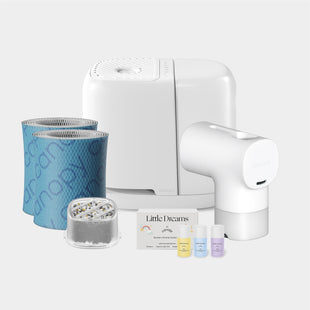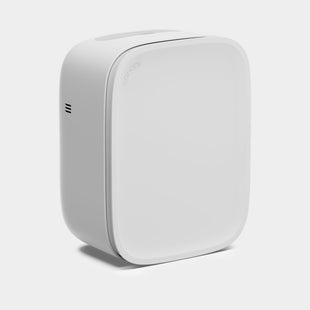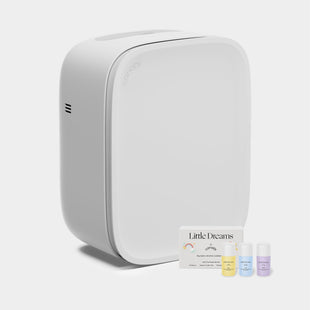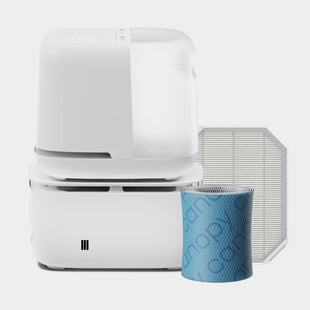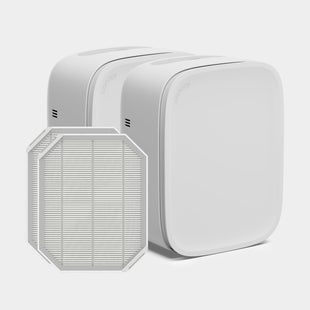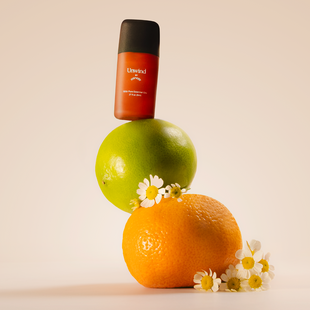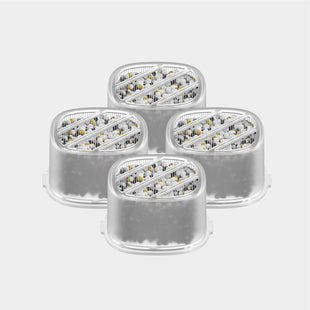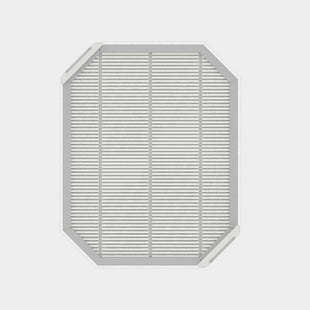This content has been reviewed and updated on November 8, 2023.
Even when you enjoy winter activities, like skiing and snowboarding or just cozy nights by a fire, it’s hard to ignore that the season’s cold temperatures and dry air can often be uncomfortable. The weather outside may not be frightful, but the air inside can still be far from delightful.
Excessively dry indoor air can contribute to many discomforts, from dry skin and hair to more seasonal illnesses. It can also make your home feel colder and force you to crank the thermostat. Using a humidifier can help reduce some of the worst of your winter woes and help you feel your best all season.
The Benefits of Using a Humidifier in the Winter
Truthfully, there’s never a bad time to use a humidifier in your home. However, when the temperature drops, the moisture levels in the air also drop far below ideal levels. Maintaining an indoor humidity level of 40% to 60% is ideal for comfort and reducing some of the health effects of overly dry air. Using a humidifier can help stop the spread of illness-causing pathogens, improve your sleep, prevent dry skin and hair, and more.
Protect Your Family From Colds & Flu

When everyone heads indoors during the winter, the germs that cause colds and other illnesses, including COVID-19, spread quickly and easily. And the spread only worsens with dry air. But maintaining adequate indoor humidity can help curb the spread of harmful bacteria and viruses. One study published in the journal Clinical Infectious Diseases found that higher relative humidity reduced the number of airborne virus particles by 50%. Other research indicates that keeping humidity levels at the recommended level decreases the survival rate of approximately 85% of airborne pathogens commonly found in the home.
Why is this? Airborne pathogens are much more agile in a dry environment, where they can easily float through the air. When you introduce moisture with a humidifier, the pathogens bond with the water molecules, making them too heavy to remain suspended in the air. The heavier pathogens drop to the ground and onto surfaces, where they die sooner and are less likely to spread illness.
Improve Illness Recovery Time
If you do catch a cold or the flu, the congestion and cough can linger for weeks on end. Dry air doesn’t help with this. When the humidity level in your home drops below 30%, it will take much longer to recover.
Increasing the moisture in your home with a humidifier helps lubricate the nasal passage and throat, which can help improve a dry cough and congestion. In addition, adequate home humidity levels can speed your recovery by making your home more comfortable and supporting your body’s natural rehabilitation processes.
Reduce Allergy Symptoms
Using a humidifier in winter can help reduce allergy symptoms, like a stuffy nose or itchy throat. Although humidity won’t eliminate allergens from the air, extra moisture can help reduce irritation in the airways.
Dry, stuffy indoor air can irritate your sinuses or exacerbate already inflamed airways. In response, your body produces more mucus to soothe the inflamed pathways. However, if there’s too much mucus, you’ll feel congested and uncomfortable. Using a humidifier can help stop this problem before it starts and make it easier to clear your congestion.
Reduce Snoring
Johns Hopkins Medicine reports that 45% of adults snore occasionally, while 25% snore regularly. If you snore or sleep next to someone who does, you know how disruptive it can be to a good night’s rest.
In most cases, snoring occurs when the facial and throat muscles relax during sleep cycles and restrict the airways. Dry air only worsens the issues by causing inflammation and irritation in the nasal passage and throat, causing louder and more frequent storing. Sleeping with a humidifier in the bedroom increases moisture to reduce airway irritation, helping everyone get a much better night’s sleep.
Treat Dry Winter Skin
For many people, winter is synonymous with dry, itchy, chapped, raw, and irritated skin. Your skin is up to 64% water, which helps the body regulate its temperature based on environmental conditions. This is why we sweat when it’s hot out—it’s the body’s way of getting rid of heat. Natural oils work as moisturizers to prevent excess water loss. But when the air lacks sufficient moisture, it pulls it from your skin into the environment, leaving you feeling parched and irritated.
Using a humidifier during the winter months can lead to a significant improvement in dry winter skin. Increasing moisture in the environment can help keep your skin from losing moisture to the environment, keeping it hydrated and supple all winter.
Additional Benefits of Humidifiers
The benefits of a humidifier in winter go well beyond helping your health and well-being. Maintaining the correct moisture levels can also benefit your home’s structure. Adequate indoor moisture cuts down on static electricity and helps keep your houseplants healthy. It also prevents wood furniture and floors from drying out and cracking and helps protect the building’s foundation.
Keeping the humidity levels in your home at the ideal level can also help maintain a more consistent and comfortable temperature. Moist air feels warmer than dry air, meaning you can stay comfortable without turning up the thermostat.
How to Choose the Best Humidifier for Winter Months

Safety
Do you have children or pets? If so, it’s critical to choose the safest humidifier for cold weather use. The American Academy of Pediatrics (AAP) recommends cool mist humidifiers for households with infants and small children. A warm mist humidifier or vaporizer is a burn hazard since curious little hands could pull on the humidifying device and spill boiling water.
Canopy humidifiers use evaporation technology to add clean moisture to the air without mist, ensuring total safety wherever you use them.
Output
Output refers to the square footage that your humidifier can reach based on the size of the device, the tank size, and its power. The right size humidifier ensures adequate hydration without creating too much moisture that increases the risk of mold and other hazards. Canopy offers two sizes: the original Bedroom humidifier, which can humidify up to 500 square feet, and the Humidifier Plus, designed for up to 1,000 square feet.
Run Time
How often do you plan to run your humidifier? Do you plan to use your humidifier as a sleep aid? Do you plan to keep your humidifier on all day long through the winter months?
Choosing a humidifier that will keep running for as long as you need it before powering down is essential to achieving the best results. If you plan to use your humidifier through the night, consider a unit with at least 8 hours of run time. If you plan to run your humidifier all day, look for one with longer run times to reduce the frequency of tank refills. Canopy humidifiers run for at least 36 hours before requiring more water.
Maintenance
Keeping your humidifier clean and sanitary is critical to ensuring you get all the health benefits of the device. Many devices require ongoing maintenance and cleaning to prevent mold and other harmful contaminants from entering the air. Choosing a humidifier for winter with minimal maintenance requirements ensures you have fresh, clean moisture all season without any unnecessary hassles or headaches.
Choose a Canopy Humidifier for Better Wellness This Winter
If you want to take advantage of all the benefits of clean, consistent moisture this winter, choose a Canopy Humidifier.
As a humidifier for winter, Canopy humidifiers check all the boxes: The no-mist humidifier with mold-inhibiting* design offers a 36-hour run time, easy to clean, dishwasher-safe components, and disposable paper filters to stop contaminants in the water from entering the hydrated air stream. Canopy also features unique SPA™ technology where smart sensors that detect when water is still sitting in the tank automatically keep the fan running until the inside is nearly dry. Every humidifier also includes built-in aroma diffusion to add a clean scent to your space.
Experience the benefits of using a humidifier in winter yourself. Explore the Canopy product lineup and convenient filter and aroma options today.
*Mold inhibition limited to device interior. Does not treat air or environment. 3rd party lab-tested with Aspergillus niger (ATCC 6275, 16404).









